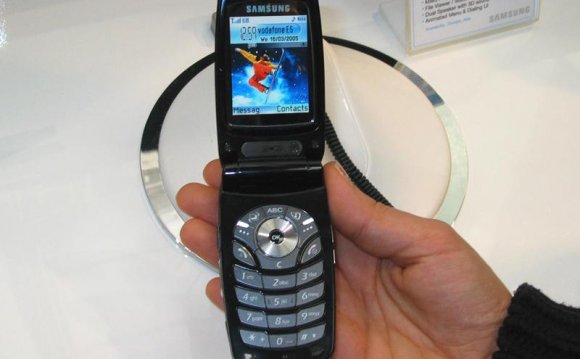
Samsung has surpassed Nokia in cellphone sales, effectively ending Nokia’s 14-year run as the world’s top handset maker, according to reports from IHS iSuppli and Strategy Analytics released late Thursday. Friday morning didn’t bring much better news for the former handset leader, either: Standard & Poor downgraded Nokia’s bonds to “junk” status with a grade of BB+/B.
According to IHS iSuppli’s numbers, Nokia shipped 83 million handsets in Q1 2012, while Samsung shipped 92 million handsets. Strategy Analytics’ numbers were only slightly different, reporting that Nokia shipped 82.7 million total handsets and Samsung shipped 93.5 million.
In the mobile industry, a 14-year lead is undoubtedly impressive. But Nokia’s lead has gradually declined in the past few years for a number of very specific reasons. Here’s what Nokia did wrong — or, alternatively, what Samsung did right — that led to one handset company’s rise over the other.
Nokia Moved Too Slowly
Nokia was a pioneer in the smartphone market, literally introducing consumers to the smartphone with its initial Symbian Series 60 devices in 2002. For the next five years, Symbian phones had little trouble maintaining a leadership position in the smartphone pack.
”They didn’t make the leap of faith onto Windows Phone until 2011. Now they are suffering from their slow response.” — Wayne Lam
But in 2007, Apple introduced its iPhone. With its full touchscreen and app-based operating system, the iPhone changed the very definition of what a smartphone should be.
Yet Nokia failed to respond to the iPhone and the shifting consumer demand that came with it. As the years passed, the Symbian platform aged, and that age really showed when compared to iOS and, later, Android. Simultaneously, the smartphone market exploded — more and more consumers opted for pocket-sized mini-computers instead of “feature” phones with tedious WAP browsers.
“When Apple came out with the iPhone, it showed the industry how the smartphone could be done right, ” Wayne Lam, IHS senior analyst, told Wired. “In hindsight, Nokia should have responded to the iPhone more quickly. They didn’t make the leap of faith onto Windows Phone until 2011. Now they are suffering from their slow response.”
Samsung, on the other hand, moved quickly into the smartphone market. Granted, Samsung had the advantage of working from the ground up, whereas Nokia had a relatively successful smartphone platform that it just didn’t want to give up. (The same can be said of RIM’s Blackberry OS.)
“If you look at Samsung a few years ago, they were nowhere to be found in the smartphone market, whereas Nokia and RIM were leaders in the smartphone market, ” Alex Spektor, Strategy Analytics analyst, told Wired. “It’s a lot more difficult to be nimble and react to the changes in the market if you’re already a leading player.”
Android Paid Off (for Samsung) and Windows Phone Hasn’t … Yet (for Nokia)
Not only was Samsung speedy, it also bet on multiple platforms, including Android and Windows Phone — and it even had its own homegrown OS, Bada, just in case none of the others worked out. But in the end, Android paid off. And it paid off handsomely.
“Samsung chose Android at the right time, and it benefited from the maturation of that platform, ” Spektor said. “Because Samsung has been the dominant player in the Android space, they’ve been able to ride the coattails of that platform.”
Nokia, on the other hand, spent its time focusing on Symbian until the company’s recent partnership with Microsoft. But Nokia’s flagship Lumia Windows Phones haven’t paid off yet, as evidenced by Nokia’s Q1 earnings.
“It was a good partnership on paper, but it was too late — over two years after the introduction of the iPhone and Android picked up market steam, ” Lam said.
Hurting on Both Ends
Not only did Nokia move too slowly in the smartphone market, it didn’t anticipate competition in the lower end of the market, either. Other manufacturers like HTC, Huawei and ZTE have attacked Nokia from the low-end in developing markets like China.
“They were also squeezed at the bottom by microvendors, which individually are not very big, but when you add them up they pose a threat in the low-end of the market, ” Spektor said.
Nokia Didn’t Have the Panache
The classic Nokia brick phone — and the Snake game on it — brings back a lot of nostalgia. But that’s a problem. Consumers, especially in developing markets, associate the Nokia name with a different era of technology. And in today’s world, having the newest and shiniest device is what matters.









